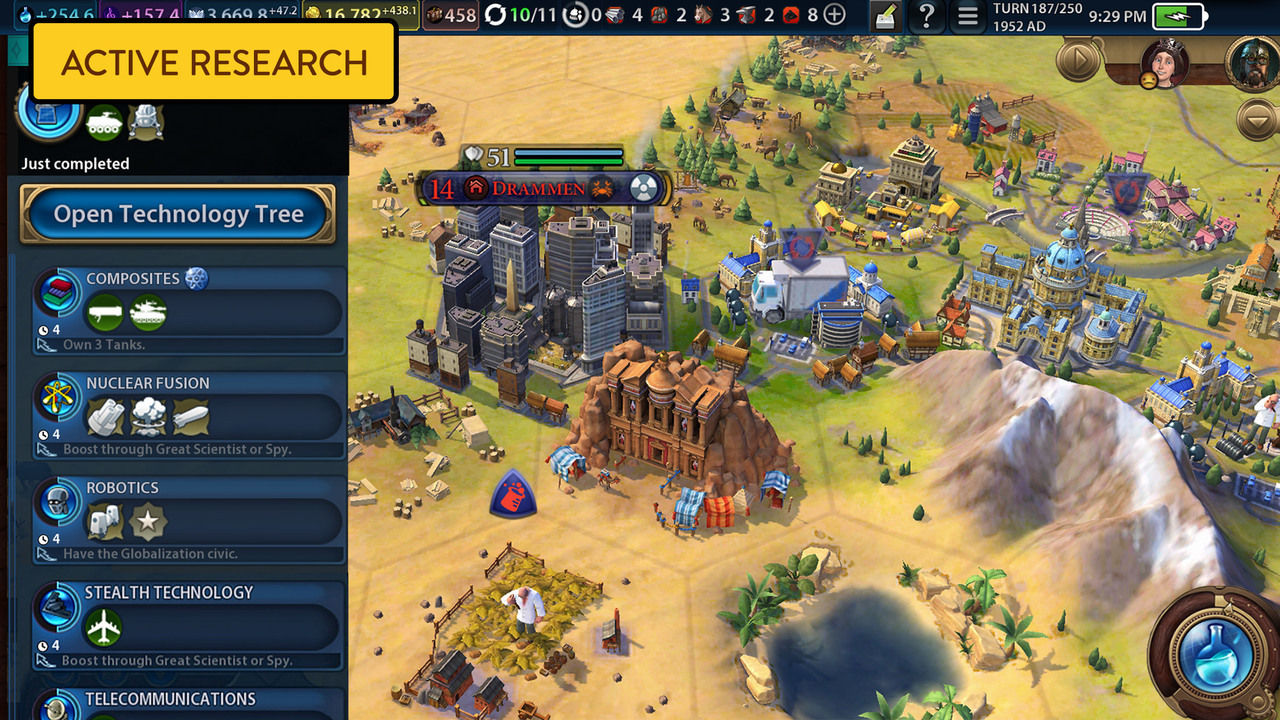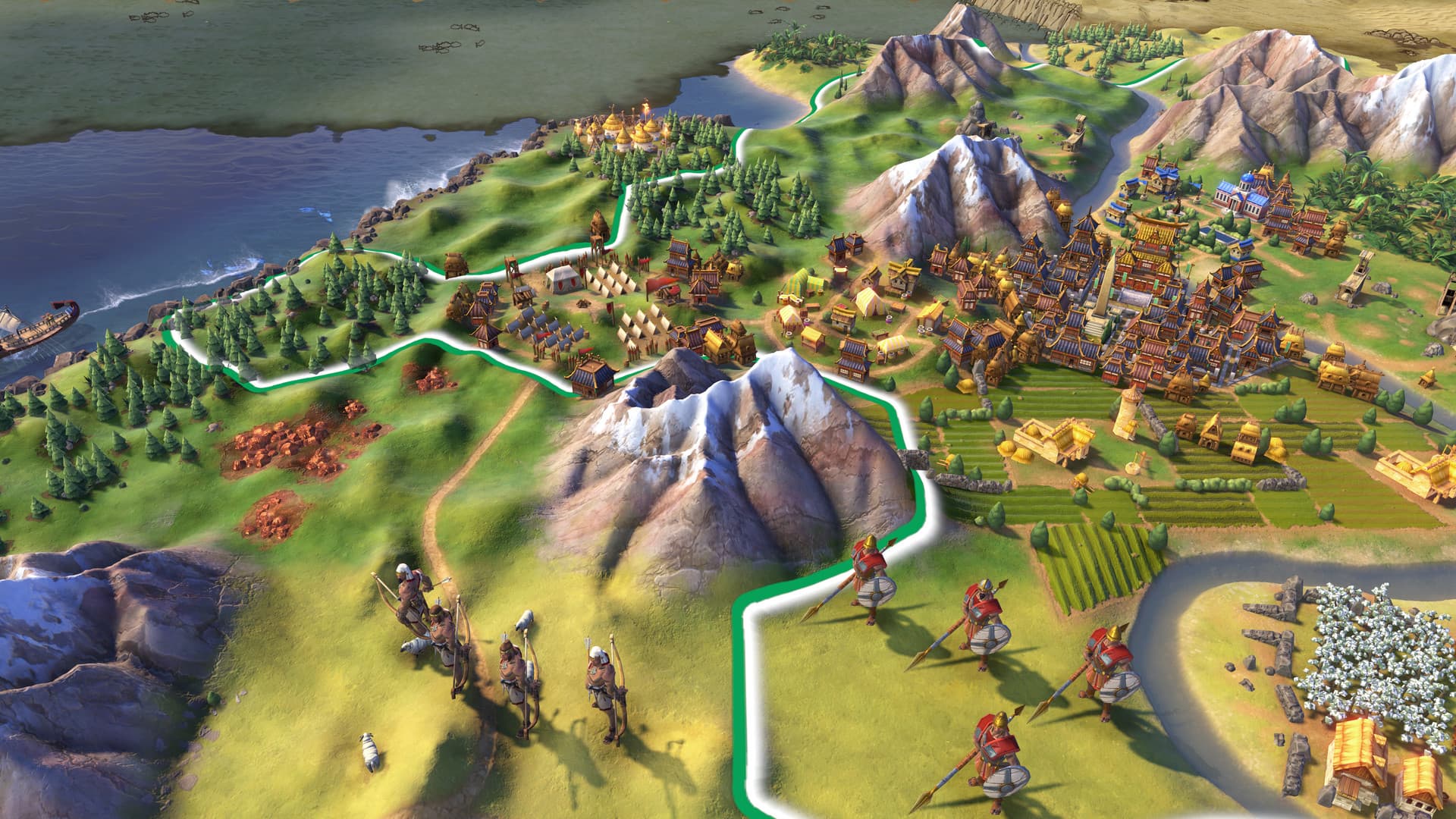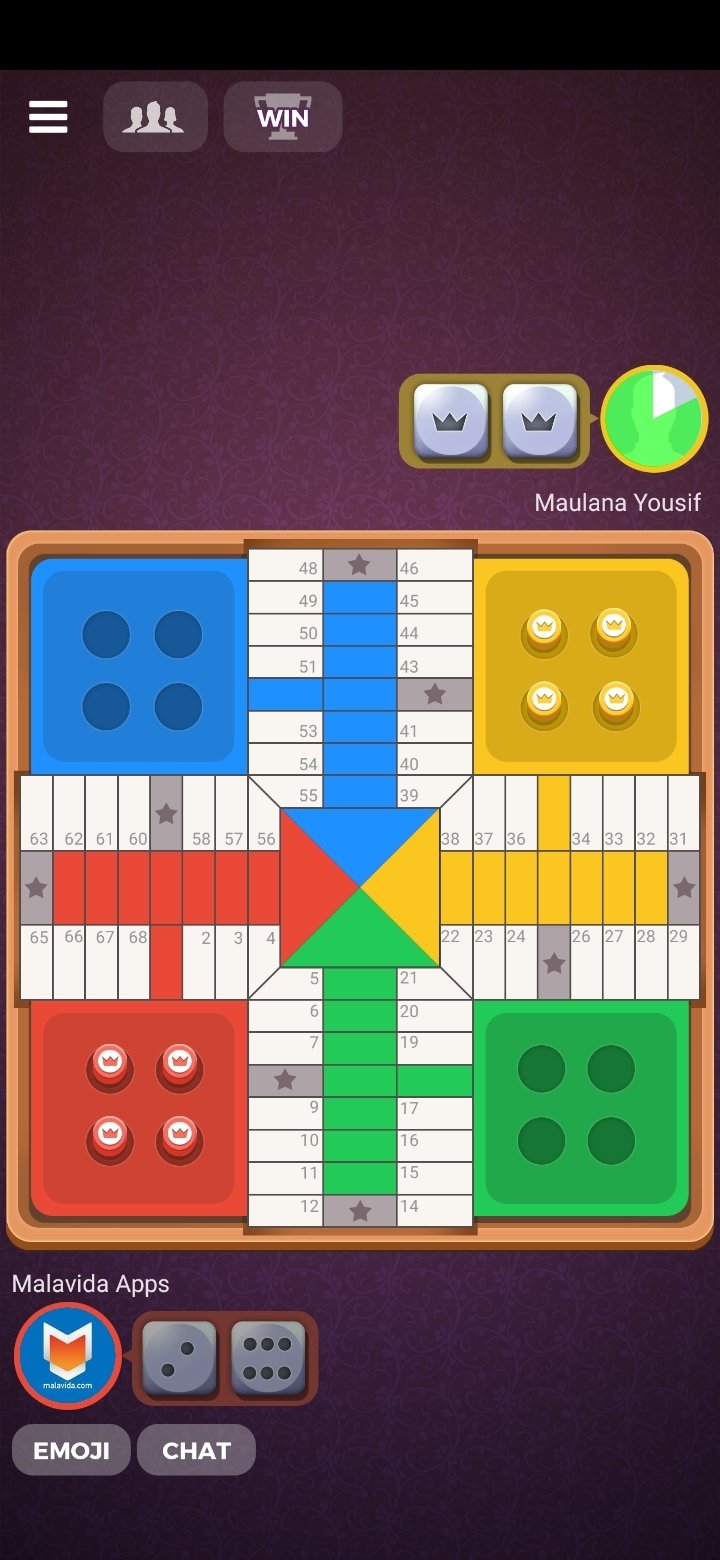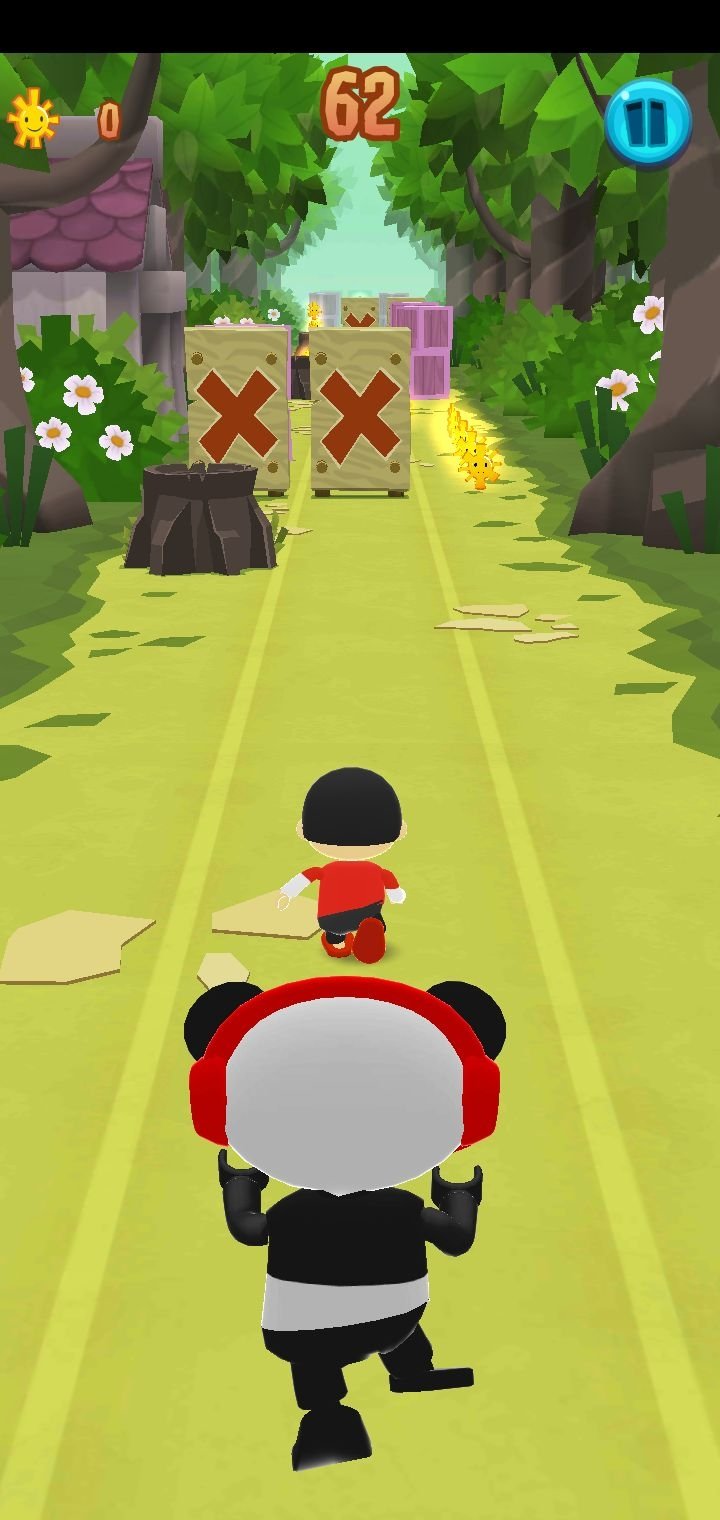box cover | Game title: | Sid Meier’s Civilization | | Platform: | MS-DOS | | Author (released): | MicroProse Software (1991) | | Genre: | Strategy | Mode: | Single-player | | Design: | Sid Meier | | Music: | Robert Prince | | Game manual: | manual.pdf | File size: | 1016 kB | | Download: | civilization.zip | Game size: | 1780 kB | | Recommended emulator: | DOSBox | | From Wikipedia, the free encyclopedia: | Sid Meier's Civilization is a turn-based strategy '4X'-type strategy video game created by Sid Meier and Bruce Shelley for MicroProse in 1991. The game's objective is to 'Build an empire to stand the test of time': it begins in 4000 BC and the players attempt to expand and develop their empires through the ages from the ancient era until modern and near-future times. It is also known simply as Civilization, or abbreviated to Civ or Civ I. Civilization was originally developed for DOS running on a PC. It has undergone numerous revisions for various platforms (including Windows, Macintosh, Amiga, Atari ST, PlayStation, N-Gage and Super Nintendo) and now exists in several versions. A multiplayer remake, Sid Meier's CivNet was released for the PC in 1995. The N-Gage version was the last game released for the system in North America.
Civilization is a turn-based single- or multiplayer strategy game. The player takes on the role of the ruler of a civilization, starting with only one settler unit and one warrior, and attempts to build an empire in competition with one to eleven other civilizations. The game requires a fair amount of micromanagement (although less than any of the simulation games). Along with the larger tasks of exploration, warfare and diplomacy, the player has to make decisions about where to build new cities, which improvements or units to build in each city, which advances in knowledge should be sought (and at what rate), and how to transform the land surrounding the cities for maximum benefit. From time to time the player's towns may be harassed by barbarians, units with no specific nationality and no named leader. These threats only come from unclaimed land or sea, so that over time there are fewer and fewer places from which barbarians will emanate.
Before the game begins, the player chooses which historical or current civilization to play. In contrast to later games in the Civilization series, this is largely a cosmetic choice, affecting titles, city names, musical heralds, and color. The choice does affect their starting position on the 'Play on Earth' map, and thus different resources in one's initial cities, but has no effect on starting position when starting a random world game or a customized world game. The player's choice of civilization also prevents the computer from being able to play as that civilization or the other civilization of the same color, and since computer-controlled opponents display certain traits of their civilizations this affects gameplay as well. The Aztecs are both fiercely expansionist and generally extremely wealthy, for example. Other civilizations include the Americans, the Mongols, and Romans. Each civilization is led by a famous historical figure, such as Mohandas K. Gandhi for India.
The scope of Civilization is larger than most other games. The game begins in 4000 BC, before the Bronze Age, and can last through to AD 2050 (on the easiest setting) with Space Age and 'future technologies'. At the start of the game there are no cities anywhere in the world: the player controls one or two settler units, which can be used to found new cities in appropriate sites (and those cities may build other settler units, which can go out and found new cities, thus expanding the empire). Settlers can also alter terrain, build improvements such as mines and irrigation, build roads to connect cities, and later in the game they can construct railroads which offer unlimited movement.
As time advances, new technologies are developed; these technologies are the primary way in which the game changes and grows. At the start, players choose from advances such as pottery, the wheel, and the alphabet to, near the end of the game, nuclear fission and spaceflight. Players can gain a large advantage if their civilization is the first to learn a particular technology (the secrets of flight, for example) and put it to use in a military or other context. Most advances give access to new units, city improvements or derivative technologies: for example, the chariot unit becomes available after the wheel is developed, and the granary building becomes available to build after pottery is developed. The whole system of advancements from beginning to end is called the technology tree, or simply the Tech tree; this concept has been adopted in many other strategy games. Since only one tech may be 'researched' at any given time, the order in which technologies are chosen makes a considerable difference in the outcome of the game and generally reflects the player's preferred style of gameplay.
Players can also build Wonders of the World in each of the epochs of the game, subject only to obtaining the prerequisite knowledge. These wonders are important achievements of society, science, culture and defense, ranging from the Pyramids and the Great Wall in the Ancient age, to Copernicus' Observatory and Magellan's Expedition in the middle period, up to the Apollo program, the United Nations, and the Manhattan Project in the modern era. Each wonder can only be built once in the world, and requires a lot of resources to build, far more than most other city buildings or units. Wonders provide unique benefits to the controlling civilization. For example, Magellan's Expedition increases the movement rate of naval units. Wonders typically affect either the city in which they are built (for example, the Colossus), every city on the continent (for example, the Hanging Gardens), or the civilization as a whole (for example, Darwin's Voyage). Some wonders are made obsolete by new technologies.
A good strategy for players who are new to Civilization is to be friendly to the strong, and destroy the weaker civilizations. Diplomats are extremely useful, for making peace, sabotaging enemy's cities, even 'buying' enemy's cities (inciting a revolt). To start the game, choose about five other countries to compete against. Next, found a city as soon as possible in an appropriate area. Bear in mind that although coastal cities may be attacked by pirates (build barracks to prevent this) they are the only ones that can launch ships. Try to build ships as soon as possible. Then put settlers and a strong attack and/or defense unit on the ship, and you are ready to found some new cities. You can look at the top five cities in the world on the World tab. These countries should be left alone unless your civilization is quite powerful. Triremes are flimsy little ships that must stay next to shore, lest they sink. Sails, (sailing ships) are much more useful, but require more technological advancements.
The game can be won by conquering all other civilizations or by winning the space race by reaching the star system of Alpha Centauri.More details about this game can be found on Wikipedia.org. | | For fans and collectors: | | Find this game on video server YouTube.com or Vimeo.com. | | Buy original version of this game on Amazon.com or eBay.com. | Find digital download of this game on GOGorSteam. | | Platform: | This version of Sid Meier’s Civilization was designed for personal computers with operating system MS-DOS (Microsoft Disk Operating System), which was operating system developed by Microsoft in 1981. It was the most widely-used operating system in the first half of the 1990s. MS-DOS was supplied with most of the IBM computers that purchased a license from Microsoft. After 1995, it was pushed out by a graphically more advanced system - Windows and its development was ceased in 2000. At the time of its greatest fame, several thousand games designed specifically for computers with this system were created. Today, its development is no longer continue and for emulation the free DOSBox emulator is most often used. More information about MS-DOS operating system can be found here. | | Available online emulators: | 5 different online emulators are available for Sid Meier’s Civilization. These emulators differ not only in the technology they use to emulate old games, but also in support of various game controllers, multiplayer mode, mobile phone touchscreen, emulation speed, absence or presence of embedded ads and in many other parameters. For maximum gaming enjoyment, it's important to choose the right emulator, because on each PC and in different Internet browsers, the individual emulators behave differently. The basic features of each emulator available for this game Sid Meier’s Civilization are summarized in the following table:
| | Emulator | Technology | Multiplayer | Fullscreen | Touchscreen | Speed | | Archive.org | JavaScript | YES | NO | NO | fast | | js-dos | JavaScript | YES | YES | NO | fast | | js-dos 6.22 | JavaScript | YES | YES | NO | fast | | jsDosBox | JavaScript | YES | NO | NO | slow | | jDosBox | Java applet | YES | YES | NO | fast |
|
|



